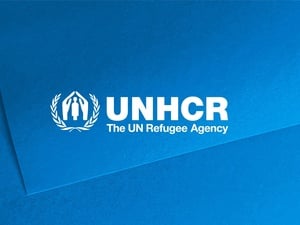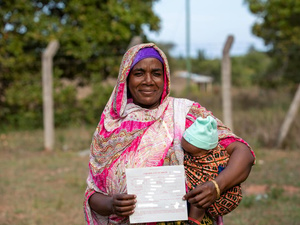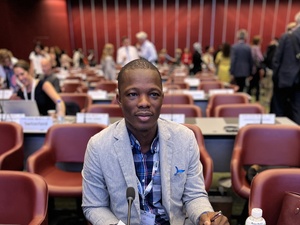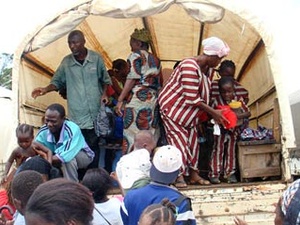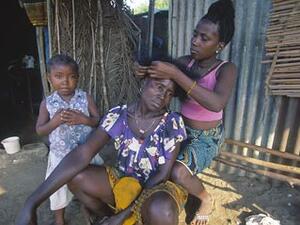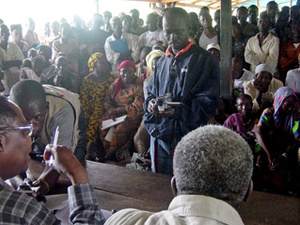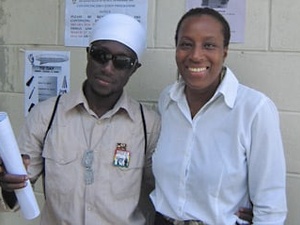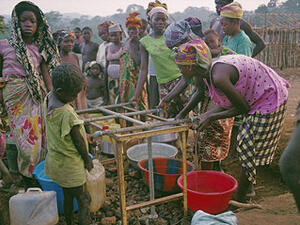Sierra Leone: first convoy from Freetown to home districts
Sierra Leone: first convoy from Freetown to home districts
UNHCR on Monday organised the first convoy for Sierra Leonean returnees who had been living in host communities north of Freetown, to their place of origin in Kambia district (north-west of Freetown).
A total of 485 persons boarded 25 trucks together with their belongings for the nearly three hour trip homewards. Nine other returnees, including 7 pregnant women and 2 sick children, made the 85-kilometre journey by car. Initially some 800 people were registered to go on the convoy but UNHCR soon found out that an additional 675 had jumped the gun and returned to Kambia themselves, probably in order to check up on their property and ready things for the return of their relatives.
Many of the passengers were in tears as they boarded the trucks, joyful to finally see their home areas after more than ten years of cruel war that left many dead, caused huge displacement, and separated numerous families.
Some of the Sierra Leoneans UNHCR transported Monday first arrived over a year ago on foot after leaving their refugee camps at Forécariah in neighbouring Guinea. Others were repatriated on UNHCR- / IOM-chartered boats. Because they could not immediately return to Kambia due to fighting, the returnees were assisted by UNHCR at sites on the Lungi Peninsula. Kambia district was recently declared safe following the UN-monitored demobilisation process, deployment of the Sierra Leonean army, the restoration of government activities and the return of paramount chiefs.
We plan two other convoys each carrying about 700 people for today and Saturday. Convoys will continue every other day until all of the 7,533 people who registered to return home have left the transit settlements at Lungi. The operation is scheduled to be completed by late December. Another 3,023 people are due to return to Port Loko district, bringing the total returnees to that area to 10,819.
Upon arrival in Kambia the Sierra Leoneans receive a 2-month food ration from the World Food Programme, sleeping mats, jerry cans, kitchen utensils and other items. Through our local partner agencies, we've been working since September on rehabilitation projects in Kambia's towns and villages, repairing clinics, schools, water and sanitation projects and providing support to local the administration. Returnees will also receive plastic sheeting, tools and seeds, and benefit from micro-credit schemes and community-based assistance, such as the "food for work" project, involving community farming.


